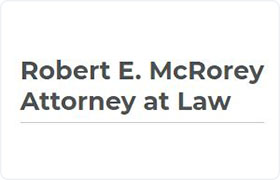Olathe Bankruptcy & Debt Lawyer, Kansas, page 4
Sponsored Law Firm
-
 x
x

Click For More Info:
-
Robert E. McRorey Attorney at Law
108 E Cedar P.O. Box 61 Olathe, KS 66051» view mapBankruptcy & Debt Law Providing Real Legal Solutions
At The Law Office of Robert E. McRorey, we are dedicated to solving the legal problems of our clients.
800-918-6860
Herman Joseph Ray Esry
Corporate, International Tax, Elder Law, Bankruptcy
Status: In Good Standing Licensed: 11 Years
 Robert McRorey Olathe, KS
Robert McRorey Olathe, KS AboutRobert E. McRorey Attorney at Law
AboutRobert E. McRorey Attorney at Law Practice AreasExpertise
Practice AreasExpertise
